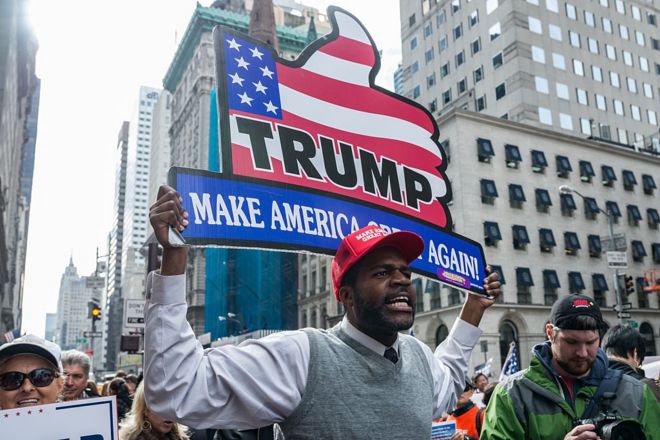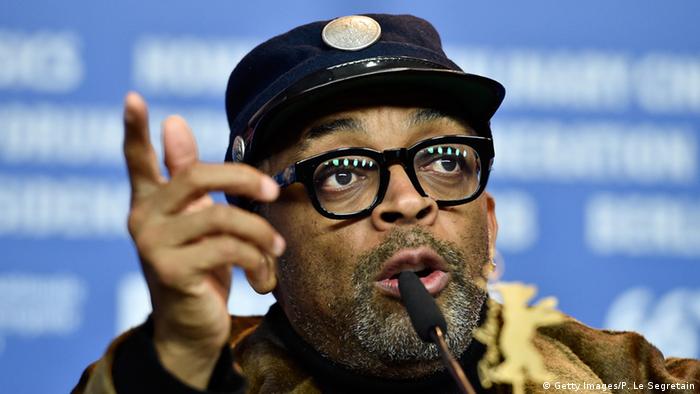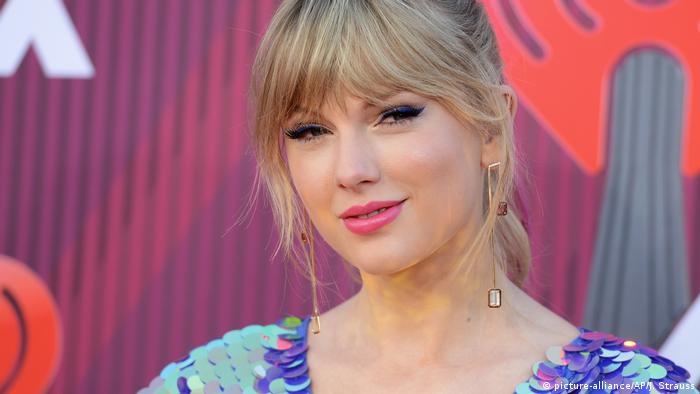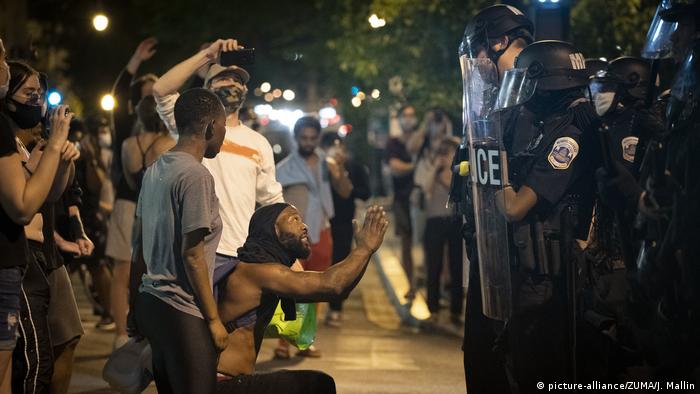By Jake Horton BBC Reality Check
4 June 2020

GETTY IMAGES
President Trump is looking to pick up black votes in the 2020 election
As protests continue across the US over the death of an African-American man, George Floyd, President Donald Trump has said he's done "more for the black community than any president since Abraham Lincoln".
He tweeted that he had delivered the lowest African-American unemployment, poverty and crime rates in US history.
So how has he done?
1. Is African-American unemployment the lowest in history?
The African-American unemployment rate reached 16.7% in April this year - the highest since March 2010.
It's spiked sharply because of the huge impact of the coronavirus crisis on the US economy. And this has disproportionately affected African-Americans - their unemployment rate is two percentage points higher than the overall figure.
But it's worth saying it went as low as 5.5% in September last year - the lowest figure recorded since the US Department of Labor started collecting these statistics in the 1970s.

As protests continue across the US over the death of an African-American man, George Floyd, President Donald Trump has said he's done "more for the black community than any president since Abraham Lincoln".
He tweeted that he had delivered the lowest African-American unemployment, poverty and crime rates in US history.
So how has he done?
1. Is African-American unemployment the lowest in history?
The African-American unemployment rate reached 16.7% in April this year - the highest since March 2010.
It's spiked sharply because of the huge impact of the coronavirus crisis on the US economy. And this has disproportionately affected African-Americans - their unemployment rate is two percentage points higher than the overall figure.
But it's worth saying it went as low as 5.5% in September last year - the lowest figure recorded since the US Department of Labor started collecting these statistics in the 1970s.


Image copyrightBBC NEWS
Prior to the coronavirus crisis, there had been a consistent downward trend in African-American unemployment under President Trump.
But it's a trend which began under President Barack Obama, who saw the rate decline from 12.6% to 7.5% during his two terms in office from 2009 until 2017.
However, there remains a disparity in wages between different groups in the US.
The average income of African-American households is almost 60% less than white households, with growth stalling under President Trump, according to the latest statistics.
2. Is the African-American poverty rate at a record low?
In 2018, the latest data available, the African-American poverty rate was 20.8% - which is the lowest on record, beating the previous year, since the official count began in the 1960s.
That represents 8.9 million African-Americans in poverty, according to the US Census Bureau.
African-American poverty has been falling since 2010

Prior to the coronavirus crisis, there had been a consistent downward trend in African-American unemployment under President Trump.
But it's a trend which began under President Barack Obama, who saw the rate decline from 12.6% to 7.5% during his two terms in office from 2009 until 2017.
However, there remains a disparity in wages between different groups in the US.
The average income of African-American households is almost 60% less than white households, with growth stalling under President Trump, according to the latest statistics.
2. Is the African-American poverty rate at a record low?
In 2018, the latest data available, the African-American poverty rate was 20.8% - which is the lowest on record, beating the previous year, since the official count began in the 1960s.
That represents 8.9 million African-Americans in poverty, according to the US Census Bureau.

African-American poverty has been falling since 2010
Source: US Census Bureau
The US Census Bureau calculates poverty by judging that if a family's total income is less than the family's needs, then every person in that family is considered to be in poverty.
Black poverty also came down under President Obama, and was 21.8% in 2016 - his last full year in office.
3. Is crime committed by African-Americans lower than ever?
This is hard to answer with any certainty.
There are crime statistics gathered by the FBI, but there isn't comprehensive data categorised by race.
Violent crime overall has fallen under President Trump, continuing a trend which started after a peak in 1991.
African-American arrests have been dropping in recent years
Source: FBI
When you look at the number of African-Americans arrested - which can give some indication - you can see arrests have come down over recent years.
They've remained relatively steady for the last four years.
The latest available data is from 2018 and shows that 2,115,381 African-Americans were arrested, according to FBI statistics.

The US Census Bureau calculates poverty by judging that if a family's total income is less than the family's needs, then every person in that family is considered to be in poverty.
Black poverty also came down under President Obama, and was 21.8% in 2016 - his last full year in office.
3. Is crime committed by African-Americans lower than ever?
This is hard to answer with any certainty.
There are crime statistics gathered by the FBI, but there isn't comprehensive data categorised by race.
Violent crime overall has fallen under President Trump, continuing a trend which started after a peak in 1991.

African-American arrests have been dropping in recent years
Source: FBI

When you look at the number of African-Americans arrested - which can give some indication - you can see arrests have come down over recent years.
They've remained relatively steady for the last four years.
The latest available data is from 2018 and shows that 2,115,381 African-Americans were arrested, according to FBI statistics.





